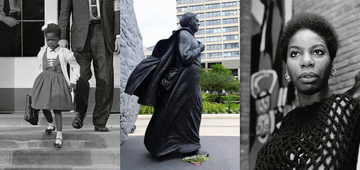- 10 April 2025
RSPH has announced the launch of Scroll Free September, the world’s first large-scale social media-free month. Public polling for RSPH shows that two thirds (65%) of people in the UK who use social media would consider participating in the campaign.
The survey also found that:
- A third of social media users and half of young users (18-34) expect quitting for a month to have a positive effect on their sleep (33% and 50%), real world relationships (33% and 50%), and overall mental health and wellbeing (31% and 47%)
- Almost half (45%) of users and two thirds (66%) of young users (18-34) say the break will improve their productivity
- Two in five young users (18-34) (40%) also think it will improve their body confidence and self-esteem
The first Scroll Free September, sponsored by Silentnight, will run from 1 to 30 September 2018. The campaign asks users to stop or cut down use of all personal (not work) social media accounts on platforms such as Facebook, Instagram, Twitter and Snapchat for the month (instant messaging apps such as WhatsApp are fine!).
It follows the publication of RSPH’s #StatusOfMind report in 2017, which found that although social media has a range of both positive and negative effects on the mental health and wellbeing of young people, the net effect of the majority of major platforms is currently negative, with impacts including heightened feelings of anxiety and depression, poor sleep, body images issues and fear of missing out (FOMO).
Like other public health awareness months, such as Dry January and Stoptober, participation in Scroll Free September will be a challenge, especially for young people raised with technology ever-present in their lives. Half of 18-34 year olds say going completely cold turkey will be ‘hard’ or ‘impossible’, and one in 10 18-24 year olds think it will be ‘impossible’. Hence there will be a number of other ways to participate, including giving up social media specifically in the evening, at social events, in the bedroom, or at work or school.
Shirley Cramer CBE, Chief Executive of RSPH, said: “Social media has become a part of almost everyone’s life, revolutionising the way we communicate and share information. It has great potential to have positive impacts on mental health and wellbeing by connecting people in new ways. However, as our #StatusOfMind report showed, for many of us, especially our young people, the overall impact on mental health and wellbeing may currently be a detrimental one.
“Scroll Free September offers us all the opportunity to take back control of our relationship with social media, whether you choose to go cold turkey, or just abstain at social events or in the evening. The aim is that by the end of the month, we will be able to reflect back on what we missed, what we didn’t, and what we got to enjoy instead of scrolling through our newsfeeds. That knowledge could help us build a healthier, more balanced relationship with social media in the future.
“Of course, we know this will be a challenge because of the addictive nature of social media technology, which is why we need to work closely with the Government and the social media industry to create an online environment that is more conducive to positive mental health and wellbeing. The ongoing work of the APPG on Social Media and Young People’s Mental Health and Wellbeing will play a vital part in this.”
Chris Elmore MP, Chair of the All-Party Parliamentary Group (APPG) on Social Media and Young People’s Mental Health and Wellbeing, said: “Scroll Free September is a great opportunity to take a break from social media. Many of us are guilty of becoming consumed by social media and whilst there are many benefits to using the various platforms which are available, it’s important to take some time out. I’d highly encourage everyone to get involved in this initiative – there are several different ways to do so to suit everyone. So please do take a look and see what benefits it brings to your everyday life.”
Claire Murdoch, NHS England’s national director for mental health, said: “Scroll Free is right to highlight growing concerns that social media is contributing to increasing mental health issues in young people and a major ramp up of services will be needed to deal with the problems as part of the NHS 10 year plan. We need to see concerted action, with everyone taking responsibility, including social media giants, so the NHS is not left to pick up the pieces of a mental health epidemic in the next generation.”
Dr Nerina Ramlakhan, Silentnight’s sleep expert, added: “Social networks are definitely causing a heightened feeling of FoMO, particularly with the younger generation who are so used to seeing their social lives played out online.
“It’s quite concerning to see just how much people are using social media at night time. The impact on sleep is particularly concerning. It’s proven that the blue light from phones and tablets wakes up the brain making it difficult to wind down and fall asleep. So punctuating the night with social media checks is a recipe for disaster if you want to sleep well.
“As a sleep deprived nation we’d do well to limit the amount of time we are spending on social media. Scroll Free September is a great chance to initiate this change in lifestyle and reassess our social media use.”



